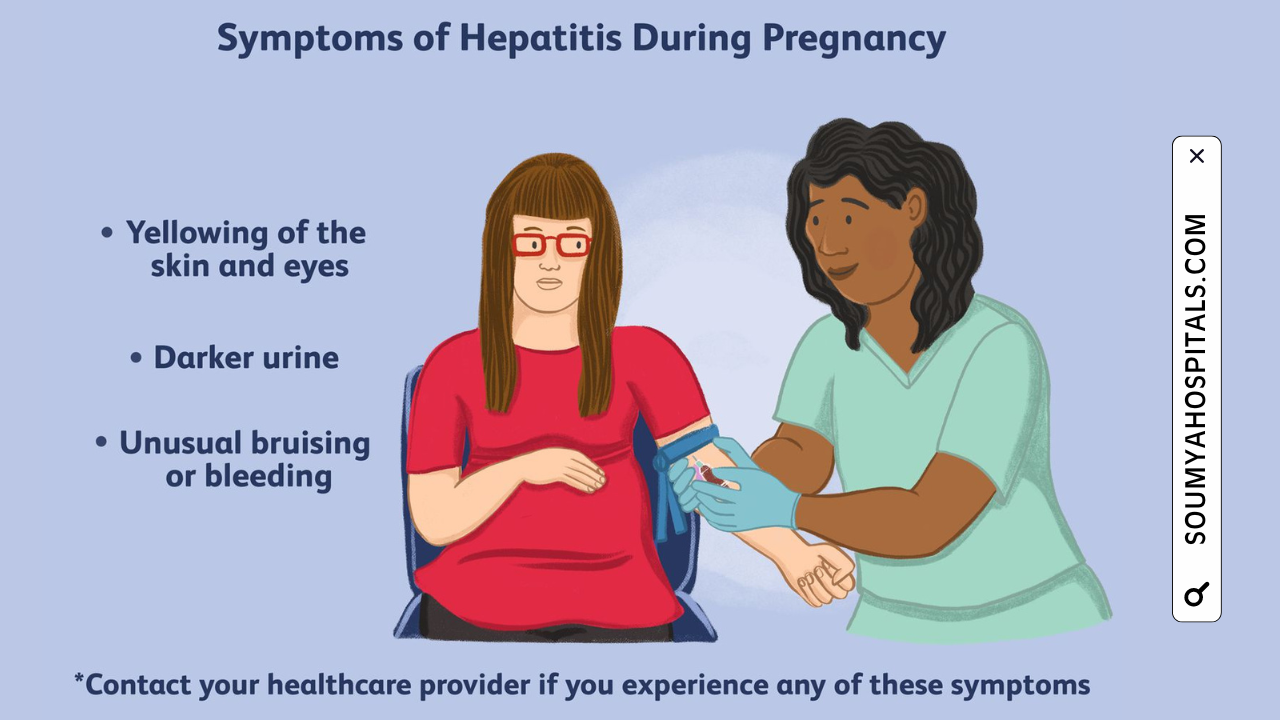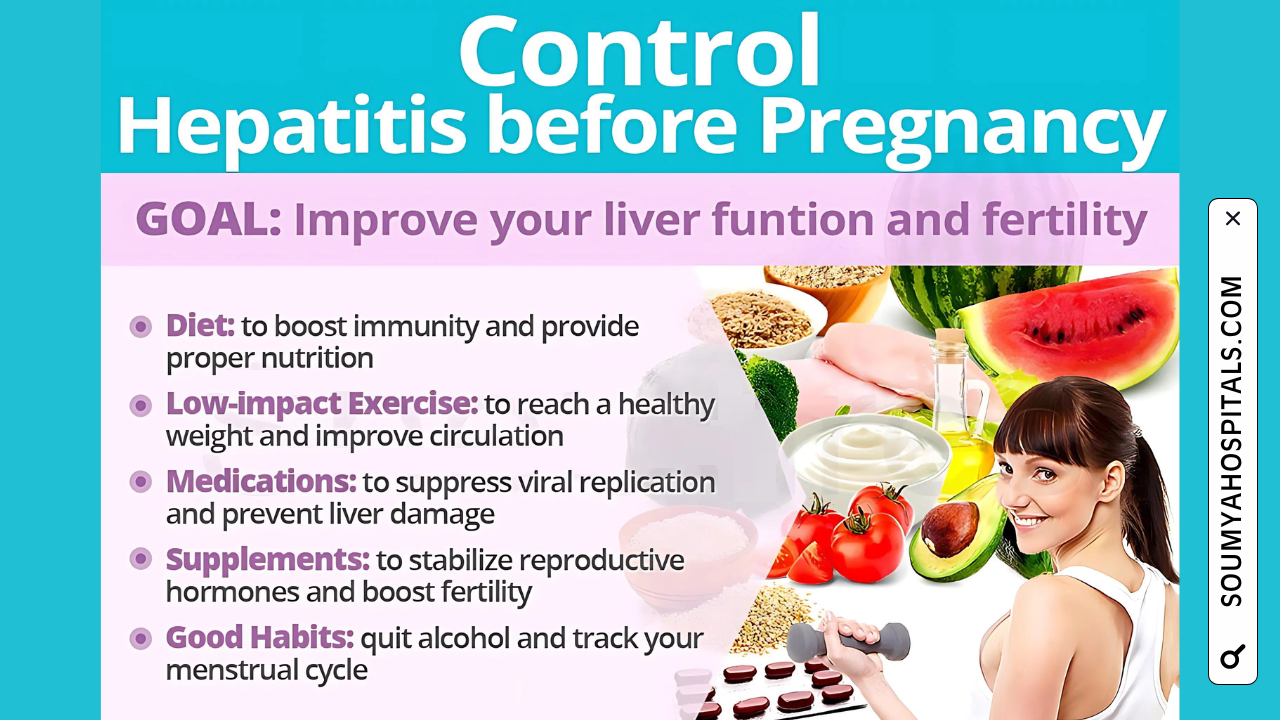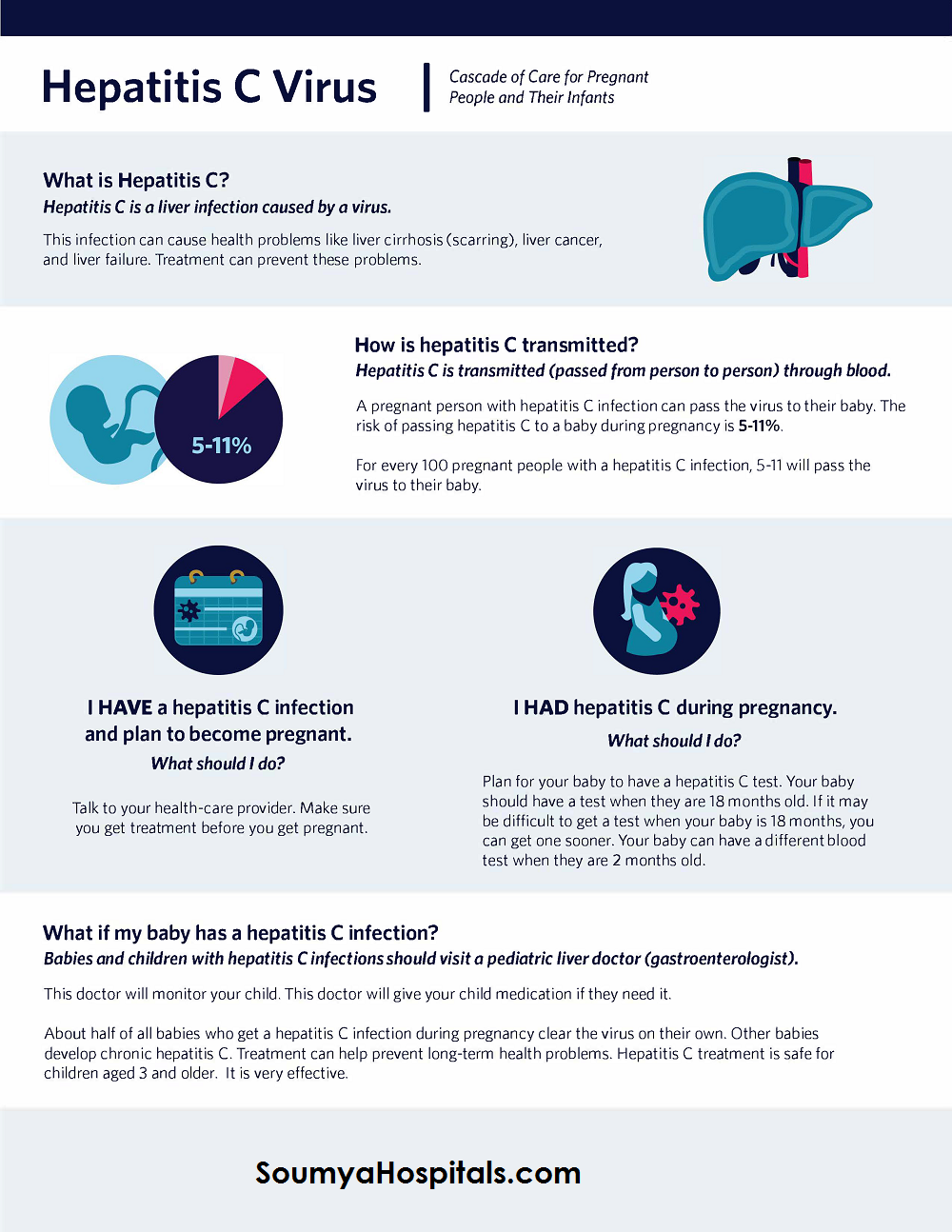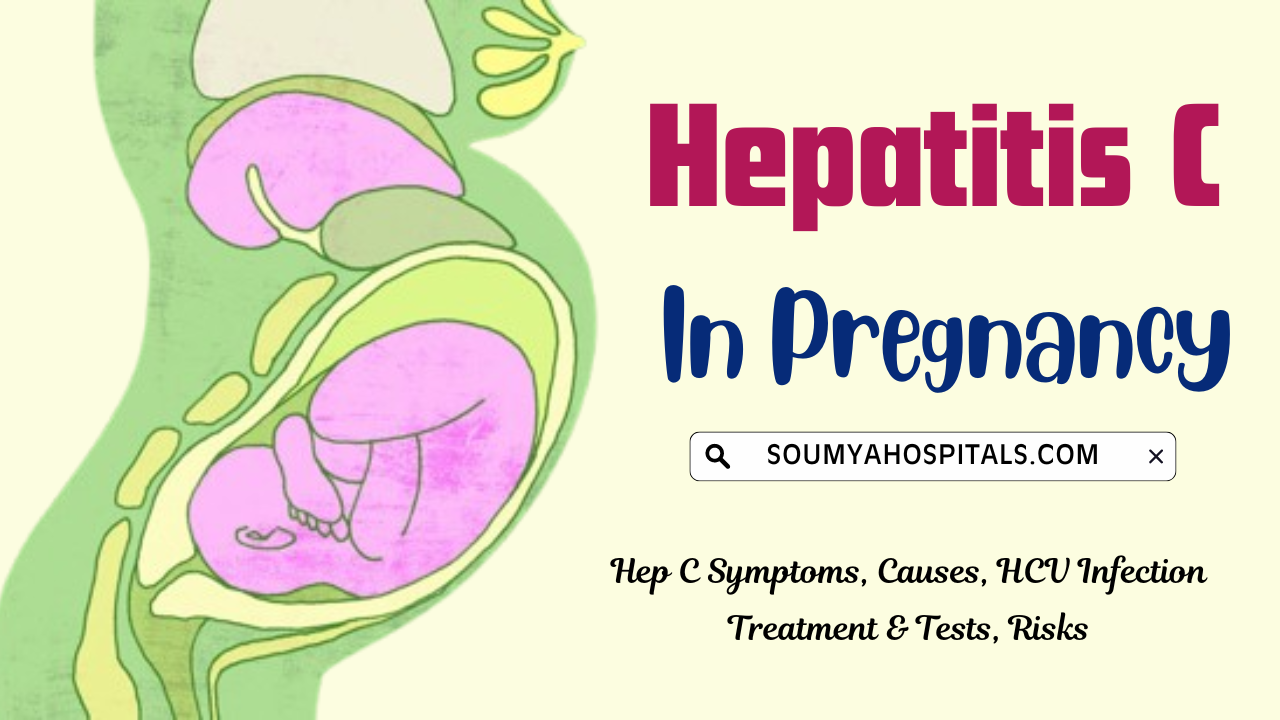What is Hepatitis C in Pregnancy is a common question, and everyone wants to know and prevent it. If you count yourself among such people, this guide is completely for you.
This ultimate pregnancy Hep C guide will provide great guidance in learning Hep C Symptoms, Hepatitis C Infection Treatment & Screening, Mother-To-Child Transmission of HCV Infection, Causes, Cost of HCV Test in Pregnancy, etc.
Learn About: Diastasis Recti (Abdominal Separation)
Dig into this guide to get complete information about Hepatitis C Viral Infection during Pregnancy.
- What Is Hepatitis C In Pregnancy?
- How Does Hepatitis C Virus Infection Affect Pregnancy?
- List of Early Warning Signs of Hepatitis C or Symptoms of Hep C
- Advanced Hepatitis C Symptoms
- What is the best time to speak with a doctor for Hep C Screening?
- Is Hepatitis C Treatable?
- How To Treat Hepatitis C Virus During Pregnancy?
- HCV Treatment for Pregnant Women
- Hepatitis C Virus Treatment for Children
- What are the DAA medicines used for HCV Treatment?
- Does Hep C Treatment Cause Any Side Effects?
- Complications of Hepatitis C Virus (HCV)
- How Is Hepatitis C Virus (HCV) Diagnosed During Pregnancy? | Hep C Testing
- When To Test For Hep C In Baby?
- What is the best time to treat Hepatitis C Virus Infection?
What Is Hepatitis C?
Hepatitis C is a disease related to the liver that results from HCV. HCV is a virus that causes via direct contact with blood. It is a dangerous infection so people should take the treatment and stop transmitting it to others like babies.
Hepatitis C Virus is an acute infection that lasts for a minimal time and then concludes. In some cases, it becomes a chronic infection and turns out to be irreversible liver damage and liver cancer.
How Does Hepatitis C Virus Infection Affect Pregnancy?
Having hepatitis C during pregnancy usually doesn't cause problems for most people. Some studies have suggested that there might be more complications during pregnancy for people with hepatitis C, but they didn't consider other factors like substance use.
However, for people with advanced hepatitis C and liver cirrhosis, there might be more risks during pregnancy and childbirth. People with a high risk of hepatitis C infection can go through the following complications so be aware of them and discuss them with your doctors.
- preterm birth
- preeclampsia
- low birth weight
- the need for a cesarean delivery
- Hemorrhaging
List of Early Warning Signs of Hepatitis C or Symptoms of Hep C

If it is an acute hepatitis C infection, the symptoms may compare to flu symptoms, like:
- Body aches.
- Fever.
- Loss of appetite.
- Fatigue.
Also, the signs may correspond to the acute liver failure symptoms, for example:
- Nausea and vomiting.
- Jaundice (yellowing of lighter skin and the whites of the eyes).
- Dark-colored pee and light-colored poop.
- Abdominal pain (especially in the upper right quadrant).
Advanced Hepatitis C Symptoms
If you have chronic hepatitis C, you may not experience any symptoms until complications from liver damage arise. Liver damage can lead to cirrhosis, a condition where most of the healthy liver tissue is replaced by scar tissue, impacting the liver's function.
This process can take 10-30 years. It's essential to get screened for hepatitis C infection by your doctor. As liver function declines, you may begin to notice the following symptoms.
- Fatigue
- Loss of appetite
- Nausea
- Redness in the palms of your hands (palmar erythema)
- Spider-like veins on your skin (spider angiomas)
- Feeling generally unwell (your doctor may call this malaise)
- Pain in your upper belly, especially on your right side, under your ribs
- Jaundice
- Shortness of breath
- Itchy skin but without any visible rash
- Dark yellow pee and clay-colored poop
- Changes in your menstrual cycle
- Blood in your vomit or poop
- Trouble digesting food, especially when you eat fatty foods
- Swelling in your hands, feet, legs, and face (edema)
- Twitching, tremors, inability to control your muscles temporarily
- Yellow bumps on your skin, especially around your eyes
- Easy bleeding and bruising
- Losing weight without trying and losing muscle
- Enlarged breast tissue and shrunken testicles in people who are assigned male at birth (AMAB)
- Swelling in your belly (ascites)
- Confusion, disorientation, and mood changes
- Low volume when you pee
What is the best time to speak with a doctor for Hep C Screening?
Pregnant women or someone who is suffering from the above Hep C Symptoms can visit a doctor to proceed with the next steps. Also, if the person understands the contracted HCV infection, they should undergo Hep C treatment as early as possible to stop transmission to the baby.
Some of the reasons to speak with a doctor about Hep C Infection are:
- When people plan to have their kid
- When an accidental transmission happens with a loved or close ones
- If parents believe that the baby may have contracted HCV.
- If anyone uses needles to inject recreational drugs that cause the hepatitis C infection.
If any of these situations happen to you then consulting with a doctor immediately helps to plan a perfect treatment for adults and children.
Speaking with healthcare providers about Hepatitis C Viral Infection at the right time helps to examine the effect of infection on the liver, and the severity of HCV, and define how fast the treatment should start for better results.
Is Hepatitis C Treatable?
Yes, hepatitis C is treatable with the help of a direct-acting antiviral (DAA) medication. Firstly, doctors perform blood tests to identify the virus severity. Based on the result, the doctor suggested the treatment with a different DAA drug regimen. Check out the complete HCV treatment details for adults and babies below.
How To Treat Hepatitis C Virus During Pregnancy?

The treatment for Hep C Virus Infection is different for babies and adults and the process of treatment can be decided by checking their infection condition. For more knowledge, do read the below treatment process for Hepatitis C Virus (HCV) for Adults and Children.
HCV Treatment for Pregnant Women
The treatment process for curing Hep C in pregnant persons starts after they deliver the baby or after discontinuing breastfeeding. Before treating the mother, doctors ask them to retest for HCV to understand the virus load and discuss the possibilities for taking the DAA treatment.
Sometimes, the treatment of HCV during or after the postpartum period is not that important. Some reports say 10-15% of people are cured of the infection of Hepatitis C during the postpartum period. This can be caused because of the changes that happen in the immune system during pregnancy.
Hepatitis C Virus Treatment for Children
Children with Hep C infection can be treated after the age of 3 years and in some conditions, doctors start the baby's treatment at a younger age. The DAA treatment for children with HCV is decided by the severity of the infection.
After the right treatment, doctors monitor the HCV-infected kids to track their liver function and overall health until the virus is cleared from the body. Also, 40% of toddlers with Hepatitis C Virus Infection clear HCV on their own by or before 2 years of age.
What are the DAA medicines used for HCV Treatment?
If the person is suffering from chronic hepatitis infection, any of the following direct-acting antiviral (DAA) medicines can be prescribed by doctors. So, check out the list of DAA medicines that are required to treat HCV below:
- Ombitasvir/paritaprevir/ritonavir (Technivie)
- Sofosbuvir (Sovaldi)
- Glecaprevir/pibrentasvir (Mavyret)
- Daclatasvir (Daklinza)
- Sofosbuvir/velpatasvir/voxilaprevir (Vosevi)
- Elbasvir-grazoprevir (Zepatier)
- Ledipasvir/sofosbuvir (Harvoni)
- Simeprevir (Olysio)
- Sofosbuvir/velpatasvir (Epclusa)
- Ombitasvir/paritaprevir/ritonavir/dasabuvir (Viekira Pak)
Along with the DAA medicines, doctors may also prescribe one of these older medicines such as Ribavirin, Peginterferon alfa-2a (Pegasys), and Peginterferon alfa-b (PEG-Intron).
Does Hep C Treatment Cause Any Side Effects?
HCV Treatments for parents and children are safe and minimal in causing side effects often in some people. Some of the commonly caused effects after hepatitis C treatment are the following:
- Fatigue
- Insomnia
- Nausea
- Headaches
- Diarrhea
- Signs of liver injury
Complications of Hepatitis C Virus (HCV)
Around 75%-85% of Hep C-infected people develop chronic hepatitis C. If it is not treated at the right time, results in some complications like:
- Liver Failure
- Liver Cancer
- Cirrhosis, or scarring of the liver.
How Is Hepatitis C Virus (HCV) Diagnosed During Pregnancy? | Hep C Testing
You can diagnose HCV infection by performing the hepatitis C blood test during pregnancy.

Anti-HCV Antibodies Test:
In the first doctor visit, patients should undergo a hepatitis C antibody test or anti-HCV antibodies test. This HCV antibody test helps identify whether the virus has infected you via Reactive (positive) or Non-reactive (negative) results.
When the test displays a positive result, means you have been affected by HCV. If positive, then an HCV RNA Blood Test should be performed. Usually, it shows up 1-2 weeks after you're infected.
If this test shows positive then you may go through other infection tests like HIV, Hepatitis B, gonorrhea, syphilis, and chlamydia.
Genotype Testing:
Genotype testing is also one of the tests that doctors suggest for hepatitis C-infected persons to treat. It detects what type or strain of HCV that you're infected with. Among 7 different strains or types of hep C virus, Genotype 1 is the most common type in the United States.
Based on your strain of hep C, doctors suggest the best treatment to cure the HCV infection during pregnancy and stop transmitting it to the baby.
Also, doctors suggest performing some other tests to define the damage to your liver. So, the tests to be done are as follows:
Transient elastography: It is an MRI or ultrasound that examines your liver and determines how much scarring you've in your liver.
Liver function tests: This test will measure the levels of protein and enzymes in your liver. These levels will increase rapidly in 7 to 8 weeks after you're infected.
Liver biopsy: To get clear information about the situation, a doctor suggests this test to the infected patients.
When To Test For Hep C In Baby?
If you are hepatitis C positive, then your child should be tested at minimum 18 months old but not during the pregnancy. Also, this period can be shorter or longer as per the condition of the baby and the doctor's suggestion. So, consult your doctor and then proceed with the HCV test.
What is the best time to treat Hepatitis C Virus Infection?
There is no specific timing for HCV treatment as it completely depends on various factors like the age of the person or baby, intensity of the infection, and most importantly the treatment is safe for them or not.
Conclusion
As you can see how challenging is Hepatitis C during Pregnancy. Proactive management through screening, education, and appropriate treatment can considerably enhance results for both mothers and children.
Also, it is crucial to keep in touch with healthcare experts to guide this condition effectively. Meanwhile, stay tuned to our site @soumyahospitals.com and read the relevant articles on pregnancy and tests during pregnancy.
